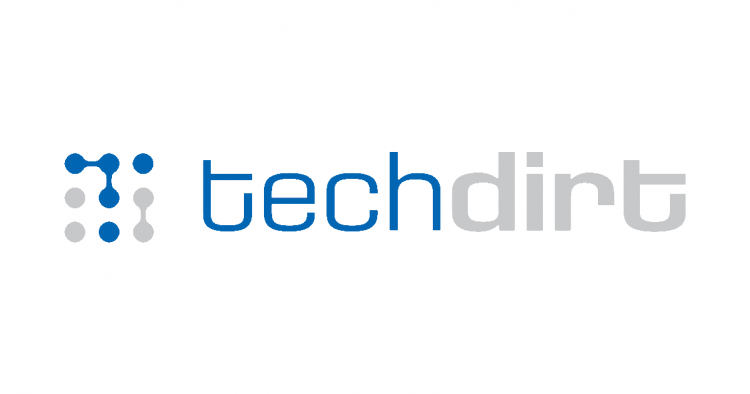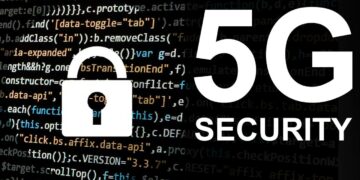from the boots-stamping-on-a-child’s-face-forever dept
As surveillance tech has become cheaper, it has become ubiquitous. Lots of people believe they can solve education-related problems, and most frequently their “solutions” involve tech replacing people and AI replacing common sense.
Even before the COVID pandemic forced most students to engage in studies remotely, human problems were being addressed with inhuman, error-prone tech. AI was deployed to monitor students’ use of school devices, flagging anything that seemed problematic and serving up curious students to law enforcement for doing things like responding to a Facebook quiz posted by local vape shop.
Going beyond social media and internet use monitoring, more cameras and more tech made its way onto campus, subjecting students to facial recognition tech and AI that mistook broom handles for guns and “aggression detecting” mics that mistook slammed locker doors for gunshots.
With kids at home, surveillance ramped up. School was still in session and school administrators, who rely heavily on grades and attendance to secure funding, deployed whatever they could to ensure students logged into classes and paid attention to whatever useless information was being handed out by instructors.
Spyware not only observed students’ online activities — recording everything from head movements to keystrokes — but they peered into students’ homes: something never before considered normal by American citizens. Cameras were enabled and educators/administrators were allowed to observe students in their own rooms and listen in on conversations between students and family members.
COVID restrictions have been in regression for months. But the surveillance tech adopted to monitor remote-learners isn’t going anywhere. Rather than consider it to be an aberrational response to an extremely unusual situation, schools appear to want pervasive surveillance to be the new baseline for the educational experience. It seems schools would like students to believe they’re worthy of nothing more than always-on suspicion, as Pia Ceres reports for Wired.
This is what high school teachers see when they open GoGuardian, a popular software application used to monitor student activity: The interface is familiar, like the gallery view of a large Zoom call. But instead of seeing teenaged faces in each frame, the teacher sees thumbnail images showing the screens of each student’s laptop. They watch as students’ cursors skim across the lines of a sonnet or the word “chlorofluorocarbon” appears, painstakingly typed into a search bar. If a student is enticed by a distraction—an online game, a stunt video—the teacher can see that too and can remind the student to stay on task via a private message sent through GoGuardian. If this student has veered away from the assignment a few too many times, the teacher can take remote control of the device and zap the tab themselves.
As the article points out, school-endorsed spyware use ramped up as the pandemic kept kids out of school. GoGuardian may be one of the less oppressive options, unfortunately. Other spyware installed by administrators allowed educators to view and control screens, monitor students’ speech and activities while they were in their own homes, and decide a student was cheating on a federal or state-mandated test just because their actions were outside of the AI’s narrow parameters.
But when administrators should be dialing back use of intrusive software, they’re instead embracing it as the future of education. Mission creep is combining with the limitations of spyware to subject students to surveillance that goes far beyond monitoring school activities.
One associate principal I spoke to for this story says his district would receive “Questionable Content” email alerts from Gaggle about pornographic photos and profanities from students’ text messages. But the students weren’t texting on their school-issued Chromebooks. When administrators investigated, they learned that while teens were home, they would charge their phones by connecting them to their laptops via USB cables. The teens would then proceed to have what they believed to be private conversations via text, in some cases exchanging nude photos with significant others—all of which the Gaggle software running on the Chromebook could detect. Now the school advises students not to plug their personal devices into their school-issued laptops.
There’s no automatic off switch once school hours are over. Administrators still have access to all activities involving school-issued equipment. But, as this anecdote points out, the surveillance covers personally owned devices used by students during off hours schools have no business trying to police. And even if they don’t act on this information, they still have access to it — something that would definitely come as a surprise to students and parents who believe the surveillance ends when the school day ends.
But there’s an even more serious problem facing school students now that the Supreme Court has dumped Roe v. Wade and LGBTQ rights remain under attack. Can school administrators utilize spyware like this to alert parents (and cops) about students seeking information on abortions or their sexuality? According to the statements and direct comments given to Wired, Gaggle won’t permit that to happen. Representatives said the company does not track terms related to these issues by default. Further, Gaggle VP of Marketing, Paget Hetherington, says the company would reject requests from schools to track this information.
But Gaggle isn’t the only player in the school surveillance game. And statements from a marketing department should always be taken with as much salt as you can physically carry.
Finally, nothing said by this company or others explains why it’s necessary to continue to engage in pervasive surveillance of students when most of them will be attending classes in person. While I can understand that schools have an obligation to ensure school-issued devices don’t become hosts for malware and possibly illegal content, there is a lot schools can do to mitigate this without 24/7 access to issued computers and any devices temporarily attached to them.
Filed Under: privacy, schools, spyware, students, surveillance
Companies: gaggle, goguardian
Source by www.techdirt.com





























